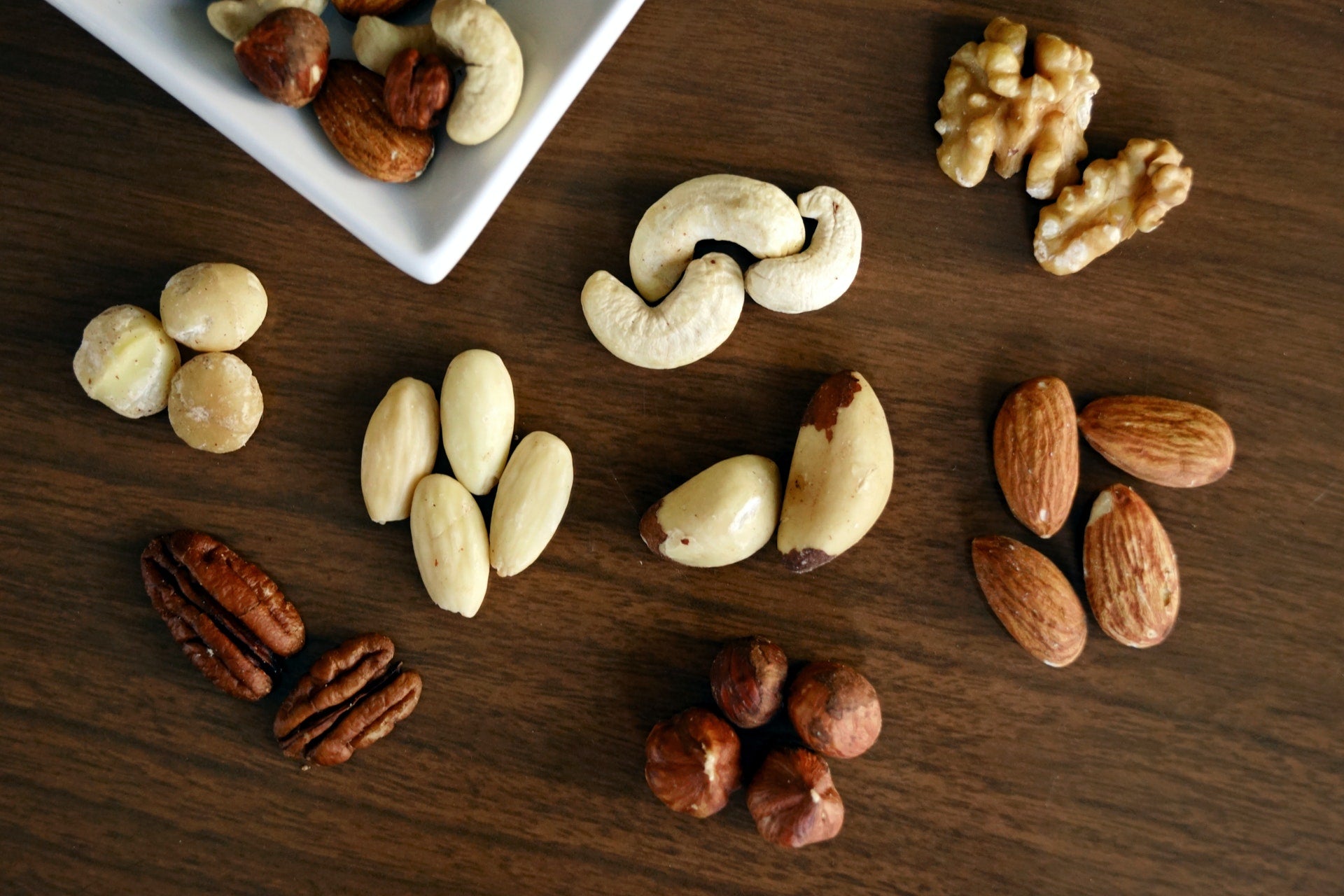Nuts Can Be Your Heart’s Best Friend
•Posted on November 22 2018

From peanuts to pistachios, or almonds to macadamias, nuts can be a delicious, healthy snack any time of day. Nuts provide a plant-based food full of fiber, protein, and antioxidants that can add flavor and health to any dish. Not only that, but research shows that adding nuts to your daily routine can improve heart health and weight management, to name a few health benefits. Let’s learn a little more about nuts and how you can make them a staple in your healthy lifestyle routine.
About nuts and heart health
Nuts are a plant-based food that for many years was avoided by many due to its high calorie content. However, research now shows that this calorie dense food is also nutrient dense and could benefit heart health. This is due to the healthy mixture of unsaturated and omega-3 fats as well as protein and fiber.
The highest protein nuts are almonds, and pistachios at about 6 grams per ounce. Cashews are not far behind at five grams of protein per ounce. When it comes to fiber, almonds, pistachios, pecans, and hazelnuts top the list of tree nuts at 3 grams of fiber per ounce. Furthermore, pecans and walnuts provide the most omega-3 fatty acids of the tree nuts at 278 and 2565 milligrams of omega-3 fatty acids, respectively.
Nuts and metabolic health
Two recent studies looked at the health benefits of adding nuts to your daily routine. The first study looked at the impact of nut intake on weight gain. Study results show that by replacing a serving of unhealthy food with an ounce of nuts, a person could lower risk of weight gain and obesity. Such unhealthy foods that could be replaced include red meat, processed meat, French fries, desserts, or potato chips. Research suggests that by doing this you could help counteract the gradual weight gain many adults have with aging. This in turn could help reduce risk of obesity-related conditions like heart disease and diabetes.
A second study looked at the impact of Brazil nut intake on overall health in healthy people. People in the study groups were given either a serving of Brazil nuts or pretzels with similar calorie and sodium content. Study results show that those given the Brazil nuts had an increased feeling of fullness. Also, nut intake prevented an increase in blood glucose and insulin levels after eating. These increases occurred with those eating pretzels about forty minutes after eating. Researchers suggest that this positive metabolic impact of Brazil nuts is likely due to its rich selenium content.
Other ways to improve metabolic health
Besides eating nuts, there are other ways you can help improve your health that include:
- Sleeping enough at night. Most adults require at least seven to nine hours of sleep each night for your best health. Experts suggest that if you don’t receive enough sleep, your risk for type 2 diabetes can increase. Therefore, if you have trouble sleeping, be sure to visit your healthcare provider for tips. They can also see if you may have pain or sleep apnea that is preventing you from sleeping well.
- Moving more. Staying active can help you reduce your risk of heart disease or diabetes. It does this by helping you to manage weight and improve insulin resistance. Therefore, try to engage in moderate activity for a total of 30 minutes a day most days. Such activities inlcude walking, biking, swimming, gardening, or other aerobic activity.
- Managing stress. Stress can sap your energy levels and can also increase blood glucose levels and blood pressure. Therefore, find ways to manage your stress like relaxation breathing, yoga, or talking to a counselor. Also, taking a walk outside can help refresh your mind so you manage stress better. Make time in your schedule for “me-time” that can help you improve your health.
- Taking supplements when needed. If you are B12-, iron-, or vitamin D-deficient, you can feel fatigued. This can make you not feel like being active and healthy. Therefore, be sure to have your nutrient levels checked each year. If you are low, you can take a supplement if needed to put your health on track.
References:
Harvard Health Publishing: Harvard Medical School (June 2017) “Why nutritionists are crazy about nuts.” https://www.health.harvard.edu/nutrition/why-nutritionists-are-crazy-about-nuts
Mayo Clinic (September 9, 2016) “Diabetes prevention: 5 tips for taking control.” https://www.mayoclinic.org/diseases-conditions/type-2-diabetes/in-depth/diabetes-prevention/art-20047639
National Sleep Foundation (accessed November 13, 2018) “The link between a lack of sleep and type 2 diabetes.” https://www.sleepfoundation.org/sleep-disorders-problems-list/the-link-between-lack-sleep-and-type-2-diabetes
Sandoiu, A. (November 5, 2018) “Daily serving of nuts may stave off weight gain.” Medical News Today, https://www.medicalnewstoday.com/articles/323577.php
Today’s Dietitian (accessed November 13, 2018) “Nutritional Profiles of Tree Nuts.” https://www.todaysdietitian.com/pdf/webinars/treenuts/NutritionalProfilesofTreeNuts.pdf